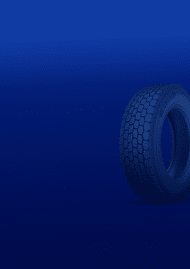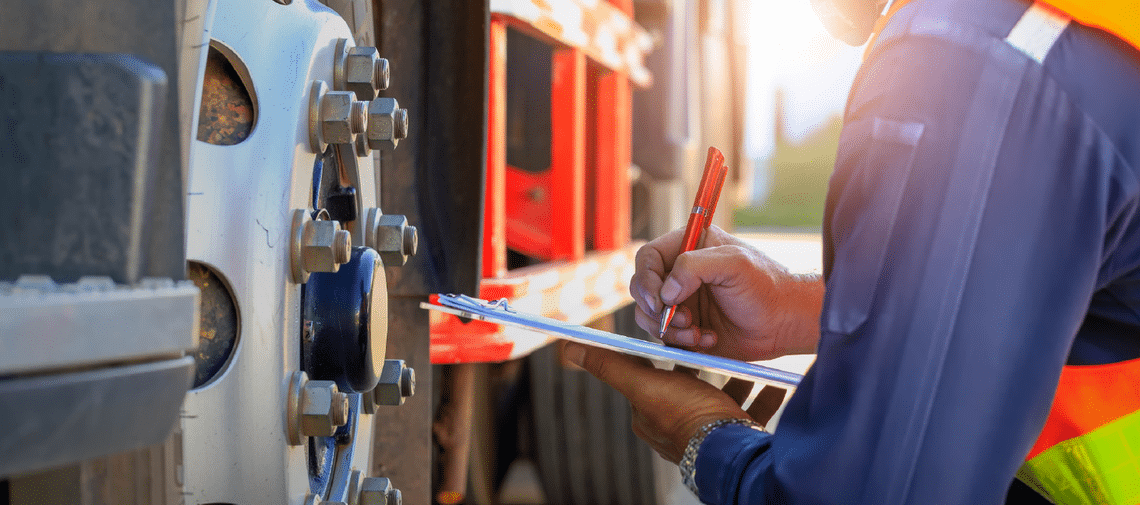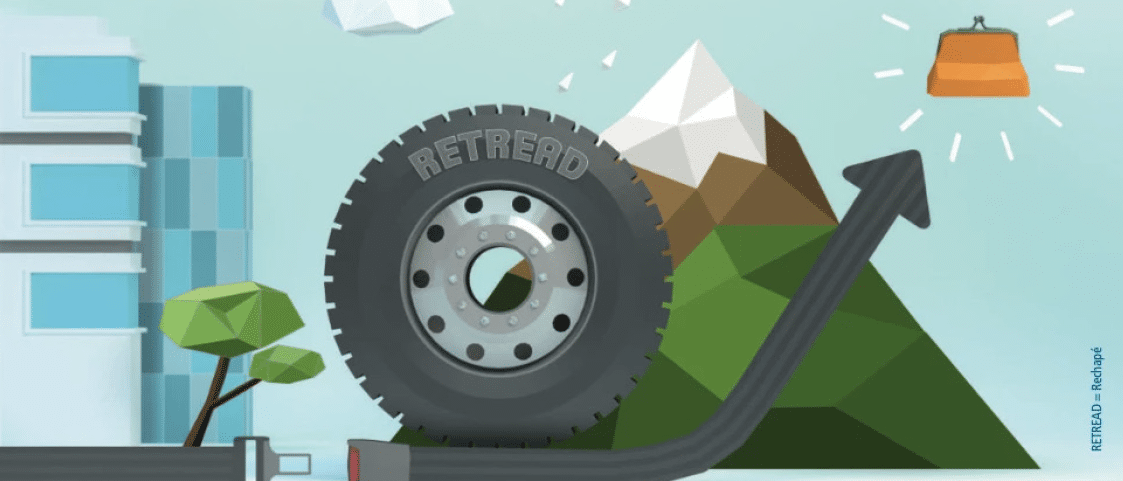
retread background
RETREADING
How to give your truck and bus tyres several new lives.
UNDERSTANDING RETREADING WITH MICHELIN
WHAT IS RETREADING?
Retreading is the process of renewing worn-out tyres by replacing the old tread with a new one. This practice extends the life of the tyre, making it a cost-effective and environmentally friendly alternative to purchasing new tyres. Michelin’s retread technologies ensure that retread tyres meet high standards of safety and performance, comparable to new tyres.
THE RETREAD PROCESS:
Michelin employs a meticulous 9-step retreading process to ensure quality and reliability:
1. INITIAL INSPECTION:
Each tyre casing undergoes a thorough inspection to detect any internal damage. This step is crucial to ensure that only casings in good condition proceed to the next stages.
2. BUFFING:
The worn tread is removed, and the casing is prepared for a new tread. This involves creating an optimal profile, depth, and texture for the new tread to adhere to.
3. REPAIR:
Any detected damages are repaired using industry leading techniques. This step ensures that the casing is in the best possible condition before the new tread is applied.
4. CEMENT & FILL:
A special adhesive cement is applied to the buffed surface, and any minor imperfections are filled with a rubber compound to ensure a smooth and even surface.
5. TREAD PREPARATION:
The new tread is selected, cut, and shaped to match the casing. A layer of cushion gum is applied to enhance adhesion, and the tread is carefully aligned with the casing.
6. TREAD BUILDING:
A new tread is applied to the prepared casing. This involves combining hot cushion gum and pre-molded tread to ensure a strong bond.
7. DOUBLE-ENVELOPING:
This unique process ensures uniform pressure and temperature during curing. The inner envelope applies pressure to both sides of the repair, enhancing the quality of the retread.
8. CURING:
The tyre is cured under controlled conditions to ensure optimal uniformity and integration of repairs. This step is crucial for the durability and performance of the retread tyre.
9. FINAL INSPECTION:
The retread tyre undergoes a final inspection to ensure it meets Michelin’s stringent quality standards. This includes checking for any defects and ensuring the tyre is ready for use.
THE VALUE OF RETREADING
Retreading offers significant economic and environmental benefits. By choosing retreads, businesses can save up to 50% compared to the cost of new tyres. Additionally, retreading reduces waste and conserves resources, contributing to a more sustainable future. The global retread tyre market is valued at approximately $5 billion, highlighting its importance and widespread adoption.

durability

gree bib
ENVIRONMENTAL IMPACT
Retreading plays a crucial role in reducing the environmental footprint of the tyre industry. By extending the life of tyres, retreading reduces the number of tyres that end up in landfills. It also conserves raw materials and energy that would otherwise be used to produce new tyres. Michelin’s commitment to sustainability is evident in their advanced retreading technologies, which help reduce carbon emissions and promote a circular economy.
ECONOMIC BENEFITS
For businesses, retreading offers a cost-effective solution to tyre management. Retread tyres provide similar performance and safety standards as new tyres but at a fraction of the cost. This can lead to significant savings, especially for fleets that require frequent tyre replacements. Michelin’s retread technologies ensure that businesses do not have to compromise on quality or safety while enjoying these savings.

cost effectiveness

safety and performance
SAFETY AND PERFORMANCE
Michelin’s retread tyres are designed to meet the same rigorous safety and performance standards as their new tyres. The advanced retreading process ensures that each tyre is thoroughly inspected and repaired, resulting in a product that is reliable and durable. Retread tyres from Michelin offer excellent traction, fuel efficiency, and longevity, making them a smart choice for both commercial and personal use.

retread image
E-BOOK: The Benefits of Retread !
Retreads are safe, reliable, and cost-effective choice for the truck industry. By choosing retreaded tyres, fleet owners save billions annually while maintaining high performance and safety standards. Our e-book explores the key benefits of retreading—like reduced environmental impact, extended tyre life, and significant cost savings. Download it today to discover how retreads can transform your bottom line.
FREQUENTLY ASKED QUESTIONS
Yes, retread tyres are legal in Australia. They must comply with the Australian Vehicle Standards Rules, which include specific regulations such as displaying the speed limit.
When properly manufactured and maintained, retread tyres can offer safety levels comparable to new tyres. The safety depends on the condition of the original tyre casing and the quality of the retreading process.
The lifespan of retread tyres can be similar to that of new tyres, depending on factors such as driving conditions, maintenance, and the quality of the retread process. Regular inspections are essential to ensure longevity.
Retread tyres are cost-effective, environmentally friendly, and can be customised for various applications. They help reduce waste and conserve natural resources while providing reliable performance.
Retread tyres are commonly used on commercial vehicles such as trucks and buses. While they can be used on passenger vehicles, they are more suitable for heavy-duty applications due to the thicker materials used in their construction.
Retread tyres are produced in specialised retread plants across Australia. At Michelin, we operate dedicated retread facilities worldwide, ensuring top-quality retreads no matter where you are.




